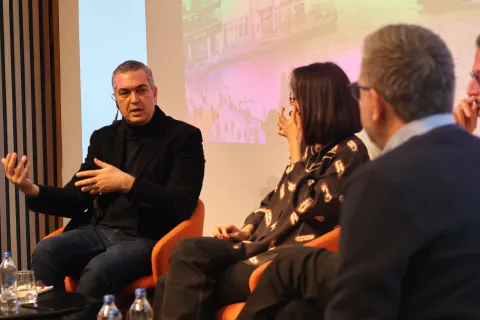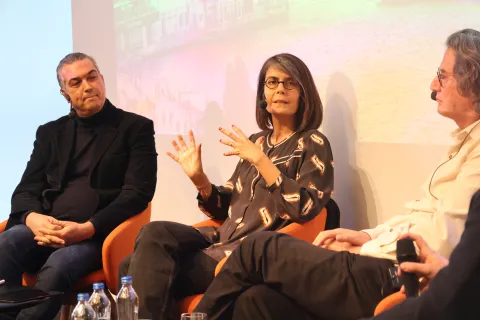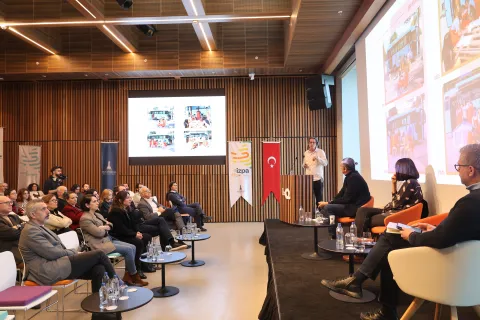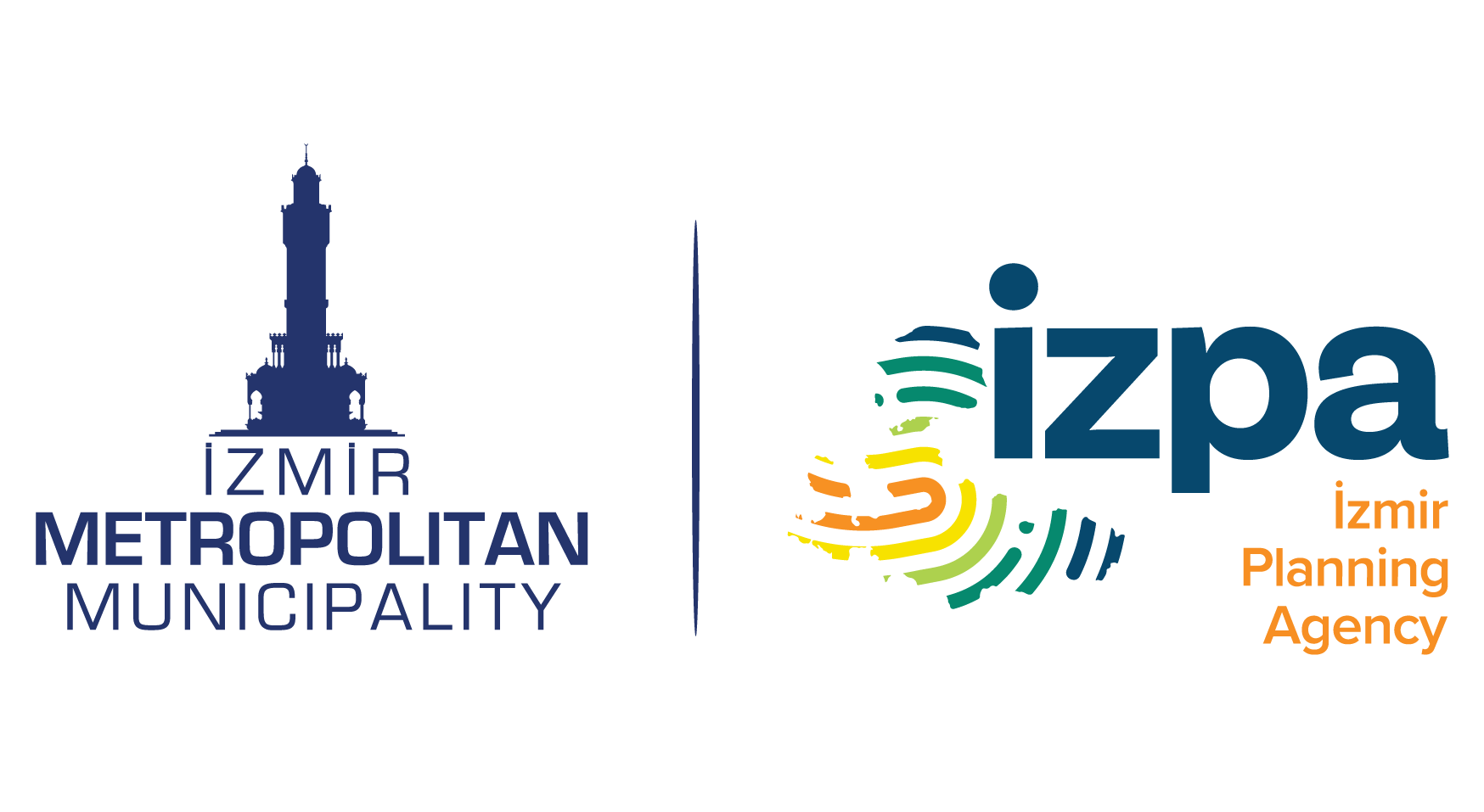The sixth panel: "City of Design and the Design of the City"
- Image
Organized by the Izmir Planning Agency (IZPA), the "What Kind of Izmir" series continued with its sixth panel, titled "City of Design and the Design of the City."
Moderated by Assoc. Prof. Dr. Murad Tiryakioğlu, the panel took place on January 18, 2025, at the İzQ Innovation Center, as part of the series comprising eight panels and eight workshops.

Highlighting Izmir's transformation through design
The first speaker, Deniz Güner, a faculty member at Dokuz Eylül University, focused on urban planning initiatives in Izmir during the 20th and 21st centuries. She emphasized the city's dramatic transformation following the events of the 1922 fire, the Great Depression of 1929, population exchange, and world wars, during which Izmir was a city struggling amidst rubble. She highlighted how the establishment of Kültürpark marked a turning point for the city, enabling it to transition from importing design to becoming a "City of Design" that exports its innovations. Güner also stressed the importance of integrating gender-sensitive and feminist perspectives into architecture and urban planning to create safer urban environments for women.
"Services must be distributed fairly"
The next speaker, Ayşe Köse Badur from Sabancı University, presented data from a study conducted in Izmir, focusing on residents' needs and rights. She noted that over 60% of respondents described Izmir as a peaceful, free, accessible city with a favorable climate. However, she also highlighted significant concerns:

“While residents appreciate these qualities, there are concerns about urban growth. Many expressed that they do not want Izmir to grow further in population, fearing it might become like Istanbul. Housing rights, inadequate building stock, and a lack of green spaces were prominent issues raised.
Izmir is an important and liberating city for women, fostering a sense of belonging. But which women? Equitable service distribution is essential. Accessibility in transportation, safety at night for all, and inclusive public spaces are vital. Additionally, the city faces challenges in retaining its youth. Educated young people are leaving for other cities or countries. To address this, new employment opportunities must be created."

Reimagining neighborhoods with community participation
The final speaker, Ali Faruk Göksu from Kentsel Strateji, shared experiences from the workshops they conducted. He emphasized the importance of redesigning neighborhoods collaboratively with residents:
"We need to develop methods to understand what can be achieved by redefining empathy. Pilot projects are essential to encourage residents to take ownership of urban initiatives. Alternative solutions must be developed to facilitate and sustain participation."
Göksu added:
"During neighborhood meetings, men often dominate discussions about urban poverty, sidelining women, who in turn silence children. Alternative methods must be explored to ensure inclusive participation.
Izmir has much to learn from nature’s systems, and there are exemplary practices worldwide. For instance, could 'green belt' policies be applied in Izmir? This needs to be evaluated.
Solution-oriented management, multi-faceted development, environmental and social impact, unity in diversity, and prioritizing the rights of children, youth, and women should all be prioritized in design processes."
The panel concluded with a Q&A session.
Looking Ahead
Conceptualized by the Izmir Metropolitan Municipality's Izmir Planning Agency, the "What Kind of Izmir" initiative will continue with biweekly panels open to all Izmir residents, followed by workshops. The initiative is expected to contribute significantly to the Vision 2074 Framework Document.
